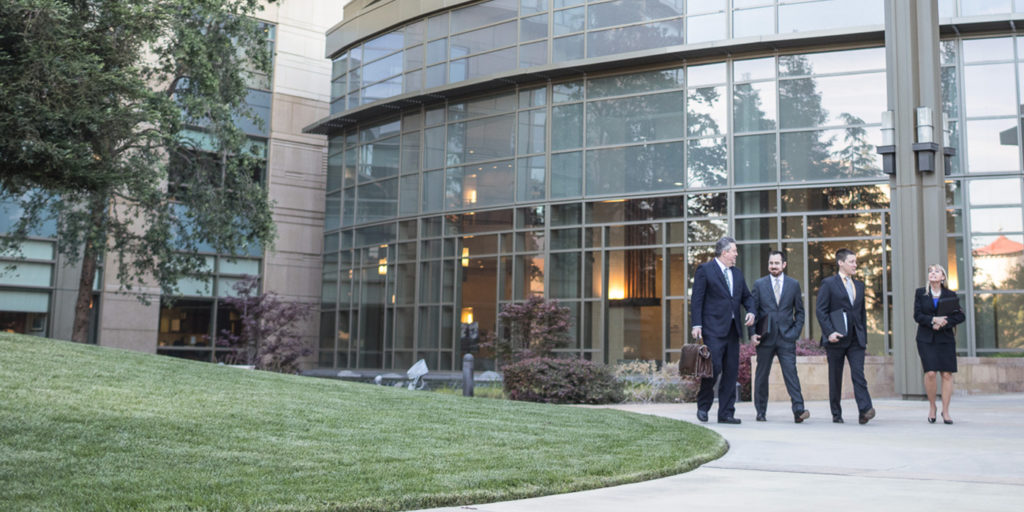There’s no place like home: U.S. Supreme Court tethers patent suits to the defendant’s State of Incorporation
Tightening venue rules for patent cases, the United States Supreme Court held that a domestic corporation “resides” only where incorporated for purposes of the patent venue statue in 28 U.S.C. § 1400(b). TC Heartland LLC v. Kraft Foods Group Brands LLC, No. 16-341, slip op.
 (May 22, 2017) (Thomas, J., writing for a unanimous Court but with Justice Gorsuch not participating). In so holding, the Court rejected a broader Federal Circuit rule permitting venue wherever patent infringement defendants fell subject to personal jurisdiction, which largely turned on “contacts” the defendant had with the state where suit was filed.
(May 22, 2017) (Thomas, J., writing for a unanimous Court but with Justice Gorsuch not participating). In so holding, the Court rejected a broader Federal Circuit rule permitting venue wherever patent infringement defendants fell subject to personal jurisdiction, which largely turned on “contacts” the defendant had with the state where suit was filed.
Kraft (a Delaware company) had sued competitor TC Heartland (an Indiana company) for patent infringement in the District of Delaware. TC Heartland was not registered to do business in Delaware, nor had it established a meaningful business presence in that state. TC Heartland did, however, ship accused products to Delaware. It moved to dismiss Kraft’s lawsuit or to transfer venue to the Southern District of Indiana. TC Heartland argued that venue was improper in Delaware because Section 1400(b) provides that a corporation resides only in its state of incorporation, as the Court had previously stated in Fourco Glass Co. v. Transmirra Products Corp., 353 U.S. 222 (1957).
Section 1400(b) states that “[a]ny civil action for patent infringement may be brought in the judicial district where the defendant resides, or where the defendant has committed acts of infringement and where the defendant has a regular and established place of business.” Kraft argued, consistent with VE Holding Corp. v. Johnson Gas Appliance Co., 917 F.2d 1574 (Fed. Cir. 1990), that Congress impliedly changed the meaning of the statutory term “resides” through amendments to the general venue statute in 28 U.S.C. § 1391. Section 1391 permits a defendant corporation to be sued in any judicial district in which it is subject to personal jurisdiction, and provides that “[e]xcept as otherwise provided by law . . . this section shall govern the venue of all civil actions brought in district courts . . . .” That language of broad application, according to the Federal Circuit, incorporated the Section 1391 definition of “resides” into Section 1400(b).
The high court reversed. Finding no clear indication that Congress intended the text of Section 1391 to control questions of patent venue, the Court affirmed its previous decision in Fourco that Section 1400(b) “is the sole and exclusive provision controlling venue in patent infringement actions . . . .” The Court found support for the continuing vitality of its rule in the subsequent amendments to Section 1391. Those changes made express that Section 1391 does not apply when “otherwise provided by law,” and omit language that the statute applies to other venue provisions “under this chapter.”
The Court thus clarified that the first clause of Section 1400(b) does not allow patent infringement plaintiffs to sue domestic corporations outside the defendant’s state of incorporation. Whether this prohibition also applies to unincorporated entities or foreign corporations awaits further clarification. See TC Heartland, slip op. at 2, n. 1 & at 7, n. 2.
Nonetheless, TC Heartland limits plaintiffs’ ability to file suit in their district-of-choice absent facts satisfying the second clause of Section 1400(b). This rule seems to constrain patentees’ ability to strategically file suit in jurisdictions where there is a perceived plaintiff-friendly bench (e.g., Eastern District of Texas) or procedurally-advantageous local rules (e.g., Eastern District of Virginia). We would expect to see a shift toward patent filings in states where entities tend to incorporate (e.g., Delaware, Nevada, California), many of which have district courts imposing patent local rules.
Going forward patent litigants will benefit from early consultation with local counsel in the defendant’s home district, as both patentees and accused infringers adjust to a new slate of district courts for infringement litigation.
Shane Smith is an intellectual property litigator who specializes in patent, trademark, and copyright law. Tim Buchanan practices in the areas of intellectual property and business litigation, and is the Chair of McCormick’s Litigation Practice Group. The authors thank Jared Gordon for helpful insight.
This Intellectual Property Client Update is a publication of McCormick Barstow LLP. It is intended to notify our clients and friends of changes and updates to the law and provide general information about intellectual property law matters. This Client Update is not intended, nor should it be used, as legal advice, and it does not create an attorney-client relationship.

